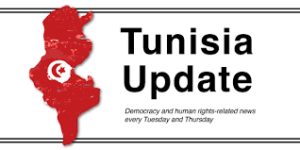The European Union signed a major deal with Tunisia on Sunday, promising the North African country as much as €1 billion ($1.12 bn) in investment, financial aid and loans in exchange for curbs on migrants leaving its shores for Europe, CNN reports.
The deal is a major boost for Tunisia’s President Kais Saied, an increasingly authoritarian leader who has spent the past few years dismantling the country’s democracy – a decade after a revolution there toppled a longtime dictator and sparked a region-wide rebellion against autocracy. Tunisia had previously been described as the only democracy to have emerged from the 2011 Arab Spring movement….. European lawmakers and human rights organizations warned that any agreement that doesn’t include human rights assurances would be seen as an endorsement of Saied’s anti-democratic policies.
“We should not fall into the trap of just looking at other countries in the region and going ‘well, you know, there’s a lot of authoritarianism and consequently, Tunisia’s authoritarianism is less concerning’,” said Max Gallien, a research fellow at the Institute of Development Studies at the University of Sussex in the UK.

Credit: POMED
Mr. Saied has spearheaded a hate campaign against workers and students from sub-Saharan Africa, accusing them of trying to replace the native Tunisian population. Mr. Saied — who has also been criticized for rolling back democracy and the rights of Tunisia’s own citizens — has denied accusations of racism, asserting that legal migrants had nothing to fear, The Times adds.
“The deal shows that once again, Europe is ready to turn a blind eye to its values to provide a short-term fix to a migration problem,” said Camille Le Coz, associate director of the Brussels-based Migration Policy Institute. “What’s missing is a reference to protection concerns and the human rights abuses against migrants.”
 Although long hailed for its professionalism, the Tunisian military aided President Kais Saied’s power grab on July 25, 2021, by shuttering the parliament. Military courts have since prosecuted dissidents, while the country backslides toward authoritarianism, Brookings notes.
Although long hailed for its professionalism, the Tunisian military aided President Kais Saied’s power grab on July 25, 2021, by shuttering the parliament. Military courts have since prosecuted dissidents, while the country backslides toward authoritarianism, Brookings notes.
In his new book, “Soldiers of Democracy? Military Legacies and the Arab Spring,” Brookings Nonresident Fellow Sharan Grewal examines the Tunisian military’s role in Saied’s coup, showing how the military’s norms, interests, and politics have shaped its behavior.
On July 25, two years after the coup, the Center for Middle East Policy at Brookings will host a virtual discussion on the findings from Grewal’s new book and the evolution of Tunisia’s military. Expert panelists will examine key questions such as why the military agreed to close the parliament, how civil-military relations are shifting today, and the implications for U.S. policy.
Tuesday, July 25, 2023. 11:00 AM – 12:00 PM EDT. Online Only
Speakers
“We should not fall into the trap of looking at other countries in the region and going ‘well, you know, there’s a lot of authoritarianism and consequently, #Tunisia’s authoritarianism is less concerning’,” @MaxGallien @IDS_UK told @CNN‘s @IvanaKottasova. https://t.co/y1cbBf6WEz
— Democracy Digest (@demdigest) July 19, 2023







